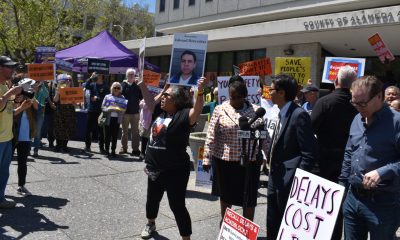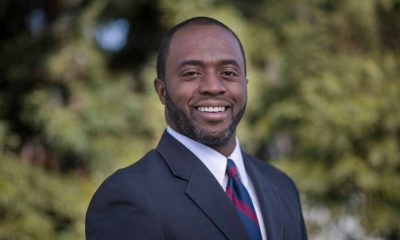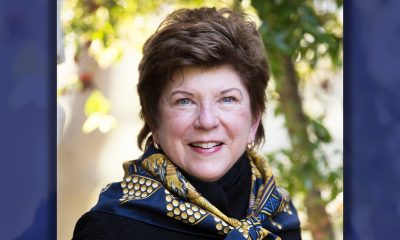Activism
Advocates to Gov. Newsom: Racial Disparities Are a Public Health Crisis
“The biggest hardship that we’re facing right now is really getting the governor to support investments to community-based organizations to focus on health equity and racial justice interventions within healthcare,” said Ron Coleman, the managing director of policy for the California Pan-Ethnic Health Network (CPEHN).

Some health advocates are calling on Gov. Gavin Newsom to treat health inequity in California as a public health crisis – one that is complicated by racism.
Their appeal to the governor comes as California state officials propose a $115 million investment in the state’s budget for the next fiscal year to address health disparities. If approved, some of the money would fund programs administered by community-based organizations.
“The biggest hardship that we’re facing right now is really getting the governor to support investments to community-based organizations to focus on health equity and racial justice interventions within healthcare,” said Ron Coleman, the managing director of policy for the California Pan-Ethnic Health Network (CPEHN).
Coleman said the state needs to make new investments in public health that will remedy the social determinants that worsen health disparities in the healthcare system.
In the revised May budget, Newsom proposed a $115 million annual grant program for health equity and $200 million for local health infrastructure. He also included $15 million in funds to support underprivileged lesbian, gay, bisexual, transgender, and queer (LGBTQ) people.
Despite the plan to increase spending on leveling the playing field in health care, a dozen community-based organizations want Newsom to do more. In addition to CPENH, other organizations include the Asian Pacific Partners for Empowerment, Advocacy and Leadership (APPEAL), Black Women for Wellness Action Project, California Black Health Network, California Black Women’s Health Project, California Latinas for Reproductive Justice, Latino Coalition for a Healthy California, Public Health Advocates, Public Health Institute, Roots Community Health Center, and Roots of Change.
The leaders of these organizations are asking the state to expand support for health programs with funds from California’s budget surplus that are targeted to addressing health disparities that impact vulnerable populations, including low-income Black and Brown families.
In the May budget revisions, “There was absolutely no new investment in the budget for public health, whether it’s the infrastructure, workforce, health equity racial justice, or prevention,” said Coleman.
Coleman specified that the money Newsom is allotting for health equity should go to community-based organizations, particularly for racial justice interventions in the healthcare system.
“We need Governor Newsom to begin treating racism as a public health crisis and make the investments in the community that will help us reduce healthcare disparities and improve health outcomes,” said Coleman.
Newsom said that the state has partnered with multiple community-based organizations for public outreach and vaccine pop-up sites. The state has also collaborated with “influencers” to implement earned and paid media strategies to counter misinformation related to COVID-19.
However, health advocates are wary about the efficacy of the state’s public health messaging campaigns as a means to reduce health disparities in ethnic communities that were the most impacted by the COVID-19 pandemic.
Coleman said that public health messaging is a promising start. But ethnic communities still need better access to health care.
“It’s great that they’re utilizing trusted messengers to disseminate information, but the state should actually be making an investment to support these organizations in helping to advance the improvements of health outcomes,” said Coleman.
Community-based organizations have been trusted messengers for the government through the pandemic. Although COVID-19 exposed health inequity, health disparities existed in ethnic communities prior to the pandemic.
A public proposal to the governor health advocates from a dozen community-based organizations stated that receiving government funds is a once-in-a-lifetime opportunity that can dismantle structural racism in California’s healthcare system.
Health advocates stressed that social determinants are major contributors to health disparities that widen the gap of inequality in healthcare. The advocates encouraged the state to prioritize social determinants including, food and housing security, childcare, and environmental justice, as defined by the California Department of Public Health.
According to the recommendations provided by the dozen organizations, the state should implement innovative approaches to achieving health inequity. They include:
- Partnerships between cities and community advocates to develop community participatory budgeting processes.
- Disaggregation of data on race/ethnicity to better understand variation in health risks and outcomes.
- Creating and cultivating racial justice training for government leaders and policy makers so that decisions and program implementation reflect community priorities and advance racial equity.
The recommendations proposed by leaders of the dozen organizations, aim to secure adequate funding for initiatives led by community-based organizations, local clinics, and tribal organizations. The leaders say they plan to use the funds to implement, monitor, and evaluate programs that promote racial justice and health.
California Black Media’s coverage of COVID-19 is supported by the California Health Care Foundation.
Activism
Calif. Anti-Sex Trafficking Advocates Discuss Competing Bills, Strategies
Advocates from across California are challenging state officials and community leaders to support legislation that provides resources and services for survivors and victims of human trafficking, as well as assistance as they transition back into civil society. Some of those advocates are also calling for more effective state policy to curtail trafficking, a crime that has an outsized impact on Black children, particularly girls.
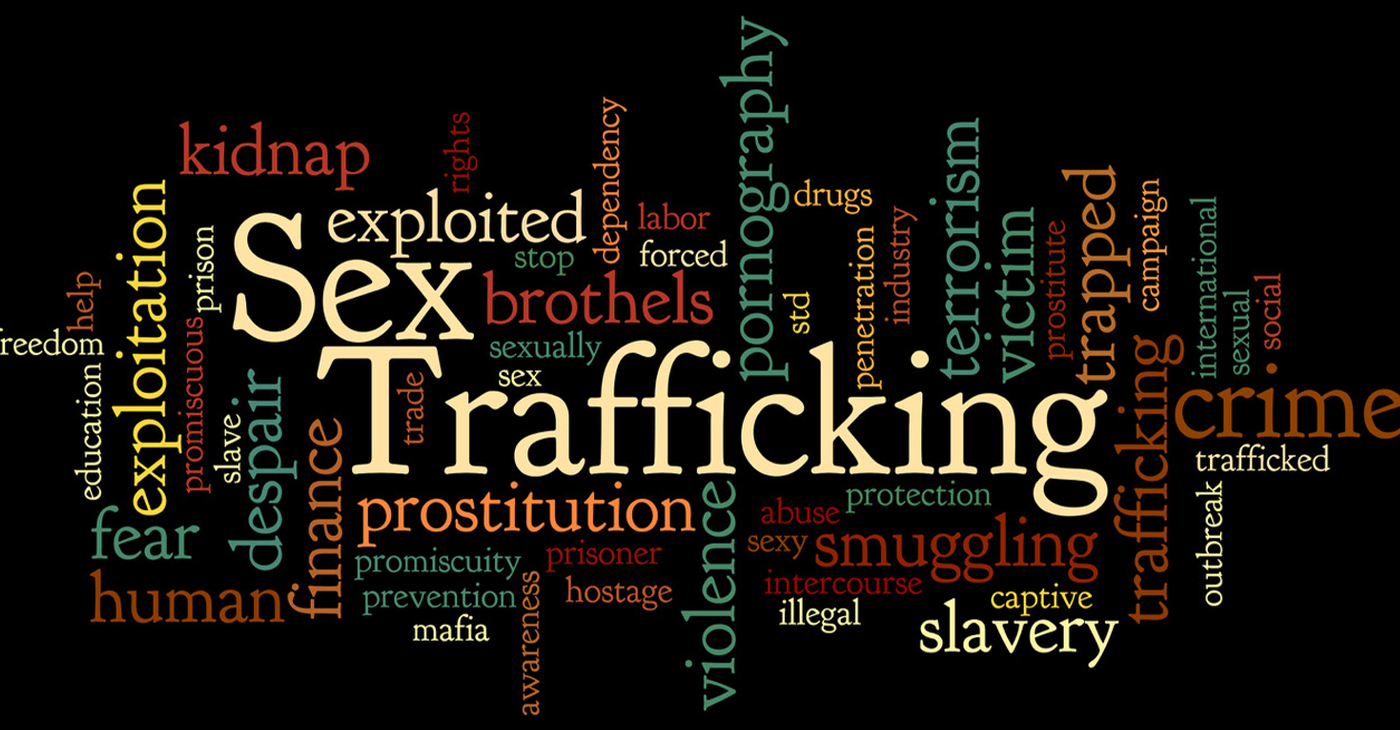
By Bo Tefu, California Black Media
Advocates from across California are challenging state officials and community leaders to support legislation that provides resources and services for survivors and victims of human trafficking, as well as assistance as they transition back into civil society.
Some of those advocates are also calling for more effective state policy to curtail trafficking, a crime that has an outsized impact on Black children, particularly girls.
According to the FBI, a report covering a two-year period found Black children accounted for 57% of all juvenile arrests for prostitution. In addition, 40% of sex trafficking victims were Black and 60% of those victims had been enrolled in the foster care system.
“It is time to hold the perpetrators who take advantage of our children accountable,” said the Rev. Shane Harris, a San Diego-based activist, former foster youth and founder of the Peoples Association of Justice Advocates, (PAJA), a national civil rights organization and policy think tank.
“It is time to send a thorough message that if you seek to buy a child for sex, you will pay the highest criminal penalties in this state,” added Harris who was speaking at a rally at the State Capitol earlier this month. Harris was speaking in support of Senate Bill 1414, authored by Sen. Shannon Grove (D-Bakersfield), which calls for people who buy sex from minors to be punished with a felony. The punishment includes a two-year prison sentence and a $25,000 fine.
Harris said the PAJA is the only civil rights organization in the state that supports SB 1414.
Harris urged other Black-led groups who favor anti-trafficking legislation more focused on criminal justice reforms (as opposed to stiffer penalties), to “join the movement.”
Many of those civil rights groups fear that SB 1414 could lead to the incarceration of more Black youth.
Those sentiments were echoed in a panel discussion organized by Black women advocates on April 26 to examine the cause and effects of human trafficking in California’s Black communities. The virtual event was hosted by the Forgotten Children, Inc, a faith-based nonprofit that advocates for survivors and victims of human trafficking through anti-trafficking campaigns and initiatives.
Panelists shared the psychological impact of sexual exploitation on youth and children in the long term.
Author and educator Dr. Stephany Powell shared statistics and information revealing that African American women and girls are the most trafficked nationwide.
Powell, who serves as the senior advisor on law enforcement and policy at the National Center on Sexual Exploitation said that national data indicates that sex trade survivors are disproportionately women of color. She stated that male survivors often go unnoticed because boys rarely report trafficked crimes.
Powell said that decriminalizing prostitution in California could increase human trafficking. She argued that Senate Bill 357, authored by Sen. Scott Wiener (D-San Francisco), which was signed into law in 2022 and legalized loitering for prostitution, caused a surge in street-level prostitution.
Panelist and psychologist Dr. Gloria Morrow shared opposing views on decriminalizing prostitution. She said that decriminalizing prostitution could help survivors gain access to state resources and support.
Despite opposing views, Powell and Morrow agree that the Black community needs resources and educational programs to address human trafficking.
Activism
Obituary: Social Justice Leader, the Rev. Cecil Williams, Passes at 94
On April 22, community leader and social justice advocate Reverend Cecil Williams died at his home in San Francisco surrounded by his loved ones, according to his family. He was 94 years old.
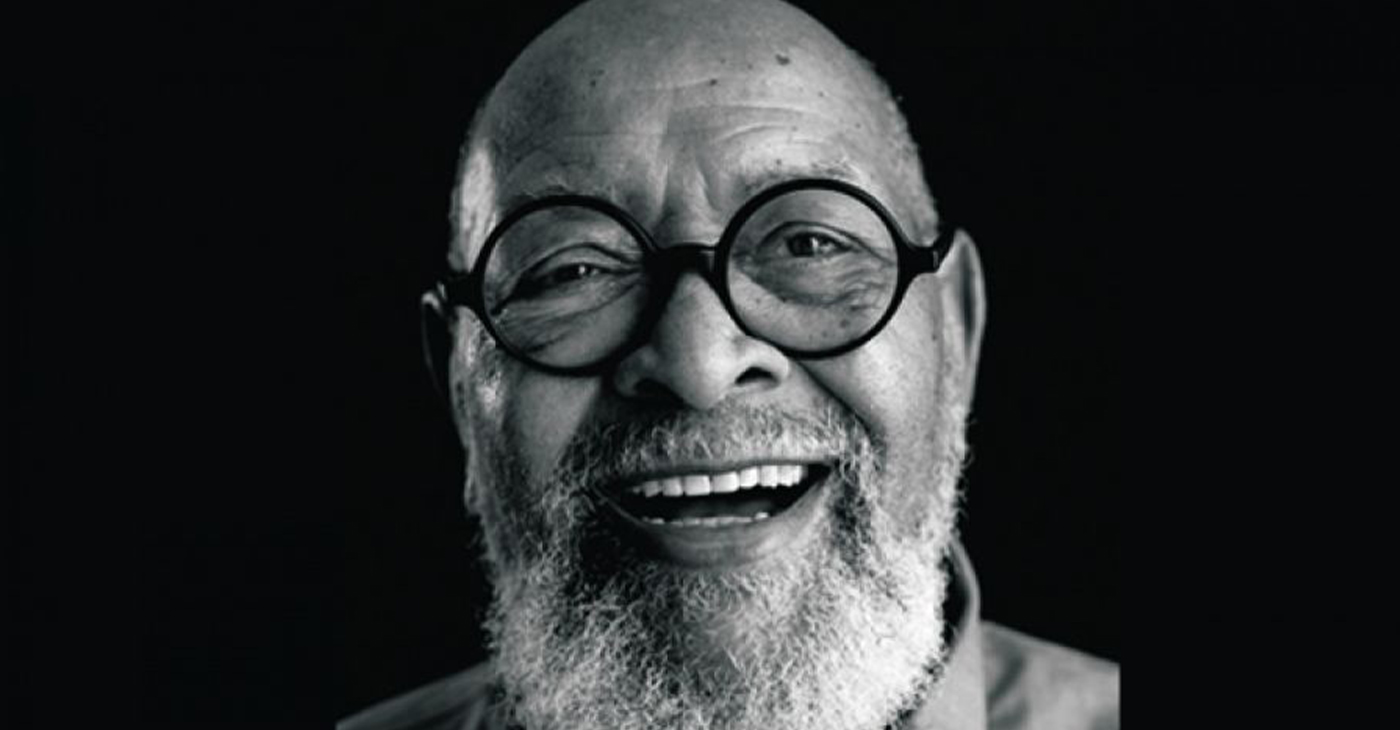
By California Black Media
On April 22, community leader and social justice advocate Reverend Cecil Williams died at his home in San Francisco surrounded by his loved ones, according to his family.
He was 94 years old.
The reverend was a civil rights leader who advocated for the equal rights of lesbian, gay, bisexual, transgender, and queer people in the Bay Area.
Williams was the head pastor of the non-denominational GLIDE Memorial United Methodist Church. The church welcomed individuals from the queer community and people struggling with homelessness, housing instability and substance use disorder (SUD).
Through his work, Rev. Williams attracted national attention. Prominent political and cultural leaders such as Maya Angelou, Bono, Oprah Winfrey, and Bill Clinton all attended church services at Glide.
Congressmember Barbara Lee (D-CA-12) said she is deeply saddened about the passing of her dear friend.
“The Reverend changed the lives of millions through radical love, support, inclusivity, and a commitment to service to the most marginalized,” Lee said.
Gov. Gavin Newsom said that the reverend inspired people across California to embody the values of generosity and acceptance.
Rev. Williams was, “a visionary leader whose legendary compassion and love for his community transformed the lives of people from all walks of life,” Newsom said.
Rev. Williams served as the chief executive officer of the Glide Foundation until his retirement in 2023.
Activism
Oakland Post: Week of May 1 – 7, 2024
The printed Weekly Edition of the Oakland Post: Week of May 1 – 7, 2024

To enlarge your view of this issue, use the slider, magnifying glass icon or full page icon in the lower right corner of the browser window. ![]()
-

 Community2 weeks ago
Community2 weeks agoFinancial Assistance Bill for Descendants of Enslaved Persons to Help Them Purchase, Own, or Maintain a Home
-

 Activism4 weeks ago
Activism4 weeks agoOakland Post: Week of April 3 – 6, 2024
-

 Business3 weeks ago
Business3 weeks agoV.P. Kamala Harris: Americans With Criminal Records Will Soon Be Eligible for SBA Loans
-

 Activism3 weeks ago
Activism3 weeks agoOakland Post: Week of April 10 – 16, 2024
-

 Community3 weeks ago
Community3 weeks agoAG Bonta Says Oakland School Leaders Should Comply with State Laws to Avoid ‘Disparate Harm’ When Closing or Merging Schools
-

 Community2 weeks ago
Community2 weeks agoOakland WNBA Player to be Inducted Into Hall of Fame
-

 Community2 weeks ago
Community2 weeks agoRichmond Nonprofit Helps Ex-Felons Get Back on Their Feet
-

 Community2 weeks ago
Community2 weeks agoRPAL to Rename Technology Center for Retired Police Captain Arthur Lee Johnson

